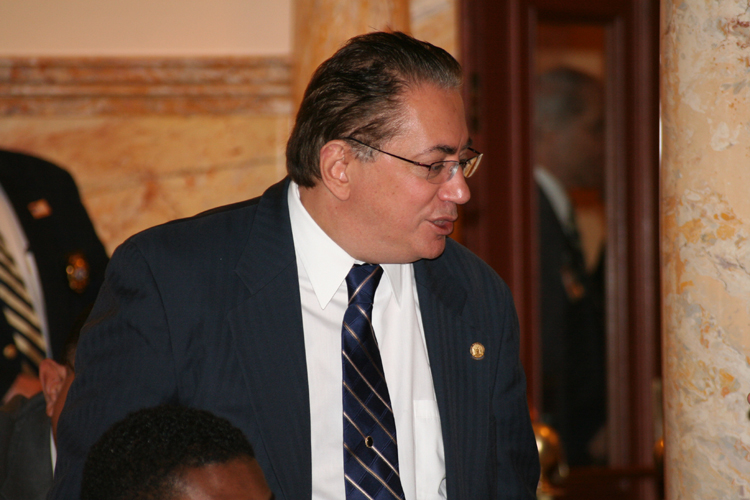
Measure Would Expand DNA Sampling to Disorderly Persons Offenders
TRENTON – State Senator Nicholas J. Sacco, the author of the State’s DNA Database law, has introduced legislation which would expand DNA sampling to include people convicted of disorderly persons offenses in order to increase the accuracy of the database and shed light on currently unsolved crimes.
“If we’re serious about keeping our State’s law-abiding citizens safe, we have to give the law enforcement community every tool possible to fight crime,” said Senator Sacco, D-Hudson and Bergen. “The DNA database has been one of the most significant advances in police technology in recent years, allowing police officers to gain new insights in unsolved crimes and exonerate innocent individuals. By expanding DNA sampling to anyone convicted of a crime, we can greatly increase the accuracy and effectiveness of the database.”
The bill, S-436, sponsored by Senator Sacco and Senator Paul A. Sarlo, D-Bergen and Passaic, would extend the DNA sampling requirement under the State’s DNA Database law to adults and juveniles convicted of disorderly persons offenses. The sample would be obtained upon imprisonment or, if the person is not sentenced to imprisonment, as a condition of the sentence. Persons imprisoned or on parole or probation for a disorderly persons offense when the law becomes effective would also have to provide a sample.
The bill also establishes that a person who refuses to submit a blood or biological sample is guilty of a crime of the fourth degree. Fourth degree crimes are punishable by a term of imprisonment of up to 18 months, a fine of up to $10,000, or both.
Senator Sacco sponsored the original bill establishing the DNA database which was signed in 1994, and he sponsored subsequent legislation in 2003 to expand the sampling universe. Under current law, adults and juveniles found guilty of, or adjudicated delinquent for, a crime of the first, second, third or fourth degree, or someone who was found not guilty by reason of insanity for any of those crimes, must submit to DNA sampling, to be compared against the current database of DNA evidence taken at crime scenes throughout the State. If the sampled DNA matches crime scene evidence, it could help law enforcement find a new lead in a currently unsolved crime.
“DNA sampling is to 21st century police work what fingerprinting was for the 20th century,” said Senator Sacco. “We can quickly and easily obtain a DNA sample and compare it to an electronic database of evidence collected at crime scenes for unsolved crimes committed anywhere in the State. DNA evidence can make the difference between a cold case and a new lead, and we ought to do what we can to improve the effectiveness of this tool.”
According to the New York Times, lawmakers in New York are considering similar legislation which would extend sampling to anyone convicted of a misdemeanor – New Jersey’s criminal code does not contain misdemeanors, but rather disorderly persons offenses. The New York legislation, which is the result of negotiations between State lawmakers and Governor Andrew Cuomo, has already garnered support from the state’s 62 district attorneys, 58 sheriffs, and 400 police chiefs.
“I applaud New York State for expanding their own database, and believe New Jersey has to quickly follow suit to send a message that if you commit a crime within the tri-state area, chances are you will be caught,” said Senator Sacco. “DNA evidence has proven to be an accurate weapon in the war on crime. By creating an ‘all-crimes’ DNA database in New York and New Jersey, we can lead the nation in this cutting-edge area of criminal justice and crime prevention.”
Senator Sacco’s legislation has been referred to the Senate Law and Public Safety Committee.



